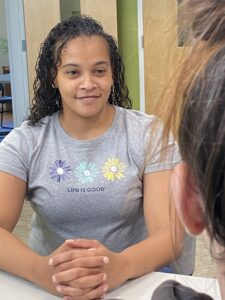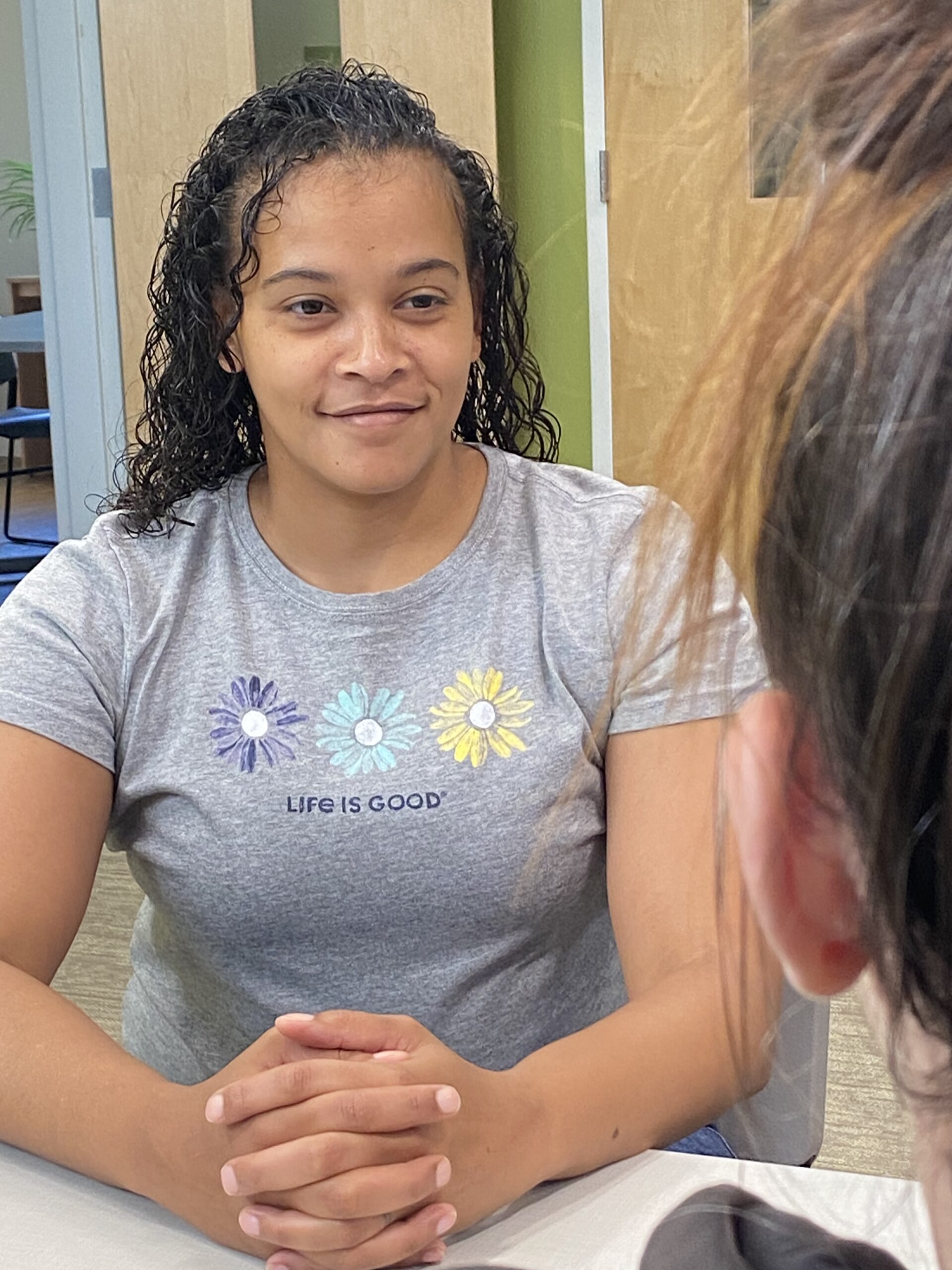
In the fall of 2021, Daniel P. wrote a heart-felt letter to former Deputy Commissioner of the Maine Department of Corrections saying there were no opportunities for recovery for residents at Bolduc Correctional Facility in Warren, where he was incarcerated. Early efforts in 2019 to build recovery programming had come to a dramatic halt with the arrival of Covid.
PRCC and the DOC were working together to change that and to make comprehensive changes to how recovery community could be built within the Department of Corrections. Soon after that letter, Daniel met with Dave Simpson, manager of evidence-based practices at the Department of Corrections, via Zoom, to share his vision that all residents within the DOC’s five facilities have access to recovery support services.
PRCC partnered with the Maine DOC to transform what recovery could look like at the DOC if residents were empowered to build programming and help one another in a true peer model of recovery.
The Recovery Coach Program is designed to help residents with substance use disorders find their recovery pathway to live a meaningful life. PRCC trains residents as recovery coaches to guide their peers to make positive changes in their lives, maintain their recovery, and prepare them for life after release from prison. The program helps to promote and strengthen recovery, remove barriers and stigma, build recovery capital, and encourage hope and optimism at each facility.
Torie Arsenault is one of PRCC’s, CCAR trained Registered Peer Recovery Coach Professional Facilitator (RCPF) and is also the recovery program coordinator for the Maine Dept. of Corrections. Torie trains residents of the MDOC as peer recovery coaches, using the Connecticut Community for Addiction Recovery (CCAR) model. She said recovery coaches have found a new sense of purpose in helping their peers in recovery.
“There’s one gentleman who will be spending the remainder of his days as a resident of the MDOC, and to see the joy in his eyes to be able to help somebody else is priceless,” Torie said. “He knows he is going to take his last breath at that facility, but he is so grateful to have the opportunity to help other people. We don’t focus on their negatives. We don’t focus on their past. We focus on the present, and into the future. It’s just a phenomenal feeling.”
“Some people are facing long sentences, and others will be leaving to move back into the community,” said Leslie Clark, executive director of PRCC. “Laying the groundwork and foundation gives them a much better chance of success. PRCC has helped bring the language of recovery, coaching, and recovery support into the DOC. But none of that would have been possible without the leadership there – from Commissioner Randall Liberty to Dave Simpson – a champion for recovery. Having a champion in the DOC made all that possible.”
Since September, Torie has facilitated four Recovery Coach Academy trainings and two Ethics trainings with residents at Maine’s correctional facilities. She provides Coachervision (supervision for recovery coaches) at every facility and led a Recovery Coach Basics class with 28 staff from Maine’s correctional facilities. According to data collected in June, Torie has trained 135 residents at the DOC as recovery coaches. Four residents just completed CCAR ‘s What Does It Mean to be a Professional Recovery Coach training. There were 54 active recovery coaches at Maine’s correctional facilities, who provided 516 hours of coaching for 70 residents.
The Deputy Chief Administrative Officer and staff are committed to providing support for the Recovery Coach program at every DOC facility. “Without PRCC, we don’t have this,” Simpson said. “With Torie, we are creating a culture of recovery from the moment you step onto our campus. There is no lag time. It’s one of the first things you’re exposed to.”
PRCC and the DOC are working collaboratively to create a culture of recovery within the prisons. Today, anyone admitted to a Maine correctional facility has immediate access to a recovery coach to help them initiate and maintain their recovery. Residents who start working with a recovery coach early on have a greater chance of sustained recovery after their release.
The DOC established a Resident Recovery Steering Committee comprised of people who are excited about recovery and have a passion for helping others. Simpson said the work of the recovery council is both inspiring and precedent setting.
The committee meets weekly, via Zoom, to talk about recovery and share ideas about creating recovery opportunities at the DOC. While the committee meets, Simpson (attempts) to sit quietly in the background.
The committee has worked tirelessly to take recovery coaching to the next level within the DOC. This spring, they drafted a proposal to teach the staff about recovery coaching. On March 10, the committee met with the Commissioner at Maine Correctional Center in Windham to give a PowerPoint presentation about recovery coaching.
Simpson said this is the recovery council’s contribution to fighting the opioid epidemic.
“They are fighting it from the inside out and they’re doing a lot of education,” Simpson said. “This is a choice and there is so much support across each department.”
The DOC utilize volunteers that bring recovery options into each facility such as Alcoholics Anonymous, Narcotics Anonymous, and SMART recovery. At Maine Correctional Center, there is a resident-driven AA meeting held in the intake reception pod.

